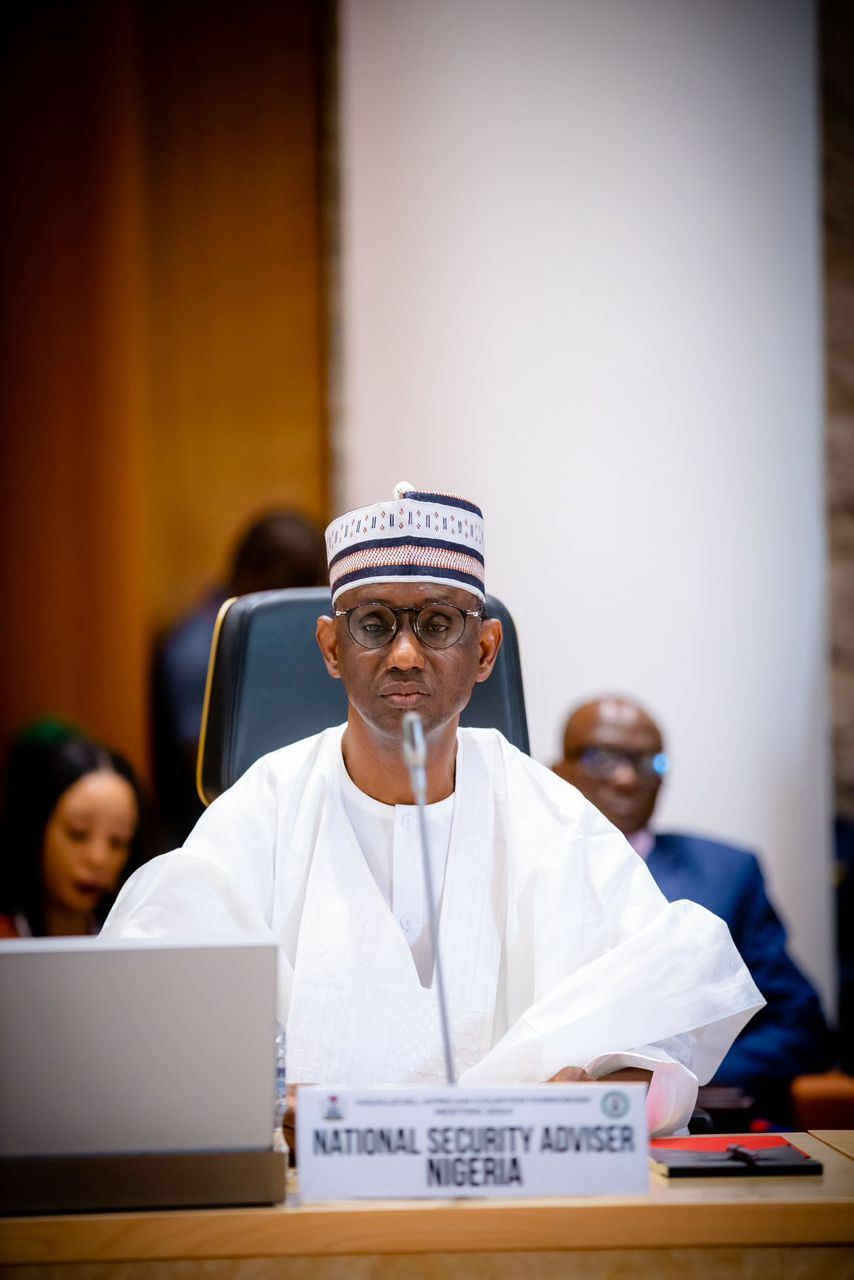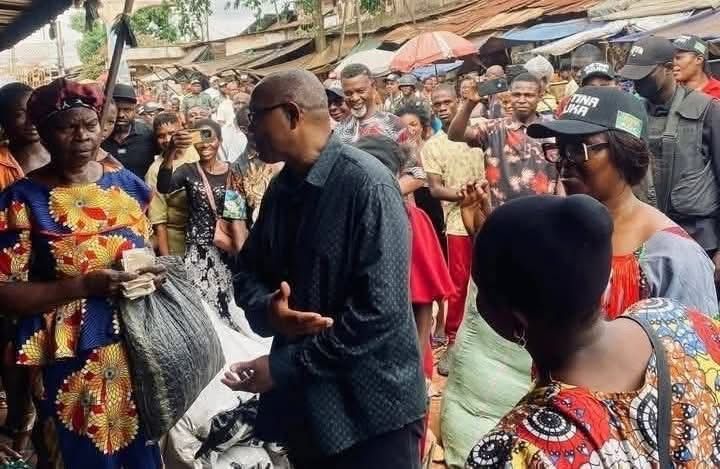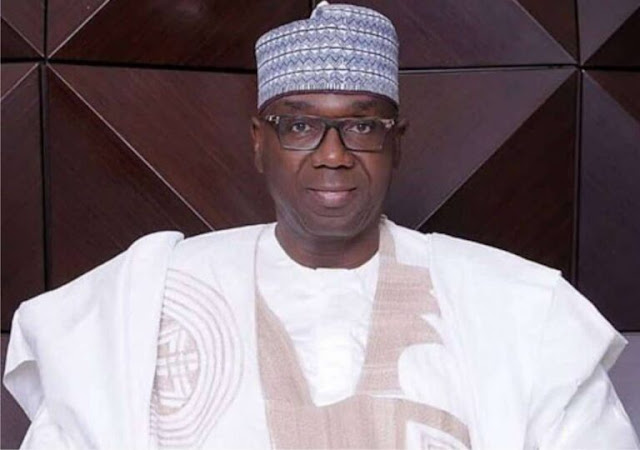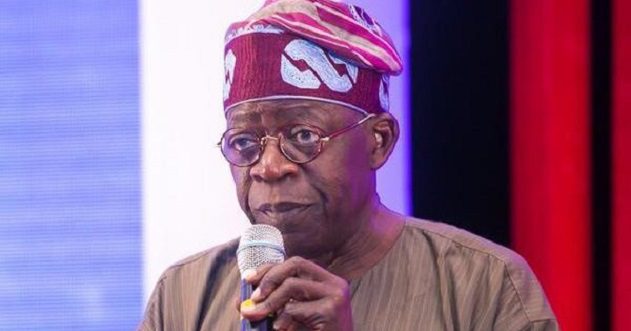NSA Ribadu: A Tinubu Masterstroke In The Fight Against Insecurity

When President Bola Ahmed Tinubu broke from standard tradition and announced the appointment of former Chairman of the Economic and Financial Crimes Commission (EFCC) as his National Security Adviser, a lot of eyebrows were raised with many expressing doubts about the wisdom behind entrusting a former police officer with the task of advising the president on the seemingly complex issues of national security.
But Malam Nuhu Ribadu is no ordinary policeman and surely, President Bola Tinubu is no ordinary president. Crucially, they are not strangers to each other having known each other and worked together politically since the ACN days. Before his elevation as the National Security Adviser to President Tinubu, Malam Nuhu Ribadu served as his Special Adviser on Security for almost three weeks. Therefore it is safe to state that Tinubu’s choice of Ribadu as NSA was a thought-out decision.
Malam Nuhu Ribadu has spent 25 full months as NSA to the President and within this period, he has redefined a lot about that office and what it can achieve. Nigeria’s security landscape over the past two years has changed drastically. It is necessary to highlight the scale of security challenges across different parts of the country that President Bola Tinubu’s administration inherited as of May 29, 2023. This will give us a clear picture of the remarkable progress made in the area of national security under this administration.
*A peep into the security challenges Tinubu inherited*
The Tinubu administration inherited at least four major security headaches that were seriously threatening Nigeria’s national security and they include the following:
*Terror Attacks in the North:* Between 2022 and early 2023, Nigeria began to witness a kind of resurgence in deadly attacks by Boko Haram beyond Borno where they were initially restricted by the security forces. For example, in July 2022, a splinter group of Boko Haram staged a daring attack in which over 100 terrorists descended on the Kuje Correctional Centre in Abuja from three sides simultaneously, killing five people and freeing over 879 inmates with over 16 persons injured. On the same day as the Kuje attack, terrorists attacked a presidential convoy in Dutsinma, Katsina State.
Terrorists also in late July 2022 attacked officials of the 7 Guards Battalion of the Nigerian Army Presidential Guards Brigade in a surprise ambush around the Bwari Area Council in the FCT, killing eight personnel and leaving three soldiers injured. Earlier in March 2022, another daring terror attack on a Kaduna-bound train from Abuja resulted in the death of 10 persons and the abduction of 61 passengers. Terrorists also began to increasingly stage attacks on both military and civilian targets across parts of the North East.
*Proliferation of Banditry in North West:* Banditry increased in intensity around 2022 with many states in the North West and a few areas in the North Central coming under siege by deadly bandits. Mass kidnapping for ransom, cattle rustling and other violent crimes became rife to the point that many food-producing communities and agricultural produce hubs such as Birnin Gwari became ghost towns, negatively impacting food security. Kaduna alone recorded 1,192 killings and over 3,348 kidnapped under the previous administration. The spate of kidnapping-for-ransom was one of the reasons adduced by the Buhari administration for embarking on the currency redesign policy.
*Large-scale crude oil theft/pipeline vandalism:* The menace of oil theft, pipeline vandalism and illegal refineries was another security challenge that increasingly became chronic in the Niger Delta region of Nigeria. The combined impact of these was the drastic decline of Nigeria’s crude oil output. Nigeria averaged 998,602 barrels per day in April 2023 – way off the 1.5mbpd OPEC quota for Nigeria.
*IPOB Siege and Attacks in the South East:* The proscribed IPOB terrorist organisation in 2021 and 2022 stepped up its attacks on Nigerian security personnel stationed in the South East, police stations and prisons as well as civilians in the region. IPOB militant wing, the ESN, thanks to steady funding and coordination from outside Nigeria, was unleashing mayhem across many communities, imposing and enforcing illegal sit-at-home orders across the zone including in state capitals and major urban centres in the South East.
*Two years later, the security landscape has improved significantly*
In two years of President Tinubu’s administration, there has been a general improvement in Nigeria’s security landscape. The President began the overhaul of the security architecture with the appointment of highly professional officers to lead the security agencies as service chiefs. He followed it up with the elevation of Malam Nuhu Ribadu as his NSA and has backed the security agencies with unflinching presidential support. Meanwhile, NSA Nuhu Ribadu, whose job is mostly to coordinate the security architecture with the backing of the President and Commander-in-Chief of the armed forces began immediately to carry out that primary assignment of COORDINATION.
He injected an increased sense of cooperation and synergy among the various security agencies including intelligence-related agencies. This inter-agency synergy has always been a missing link in Nigeria’s security architecture over the years. As a result of his previous background as EFCC boss, NSA Nuhu Ribadu saw the importance of making intelligence the central link of all national security operations. He therefore actively pursued the enhancement of the intelligence gathering and delivery capability of Nigeria’s security forces.
Beyond that, NSA Ribadu also encouraged inter-agency cooperation to enhance intelligence sharing and its utilisation to combat crime or prevent crime from taking place. He also leveraged his extensive contacts in the global intelligence community to help Nigeria record major intelligence breakthroughs within this period. The resultant general effect is as follows:
*Intelligence-driven capture of wanted masterminds of terror attacks:* Over the past two years, security agencies through solid intelligence have apprehended masterminds of terrorist attacks that took place before the Tinubu administration came on board. For example, a mastermind of the March 2022 Abuja-Kaduna train attack was arrested in 2024. A few days ago, the NSA announced the arrest of two top leaders of Al-qaeda affiliated Jama’atu Ansarul Muslimina fi-Biladis Sudan who masterminded the daring attack on Kuje prisons in July 2022. Many such successful operations shows the growing capacity of Nigeria’s security agencies to go after major wanted terror suspects relying on credible intelligence.
*Reduction in Banditry and Terror Attacks:* There has been an overall reduction in both the frequency and scale of banditry and insurgency in the North over the past two years. In the north-west states of Zamfara, Katsina, Kaduna and Sokoto which are the states most ravaged by banditry, troops of Operation Hadarin Daji have eliminated hundreds of wanted bandit commanders and thousands of their fighters while freeing tens of thousands of hostages.
The once deadly Abuja-Kaduna road has become safer for commuters once again. Many rural farming communities have become safer for the population to resume their farming activities. Notorious bandit leaders who are yet to be neutralised are in hiding and feeling the heat of the ongoing military offensives. Also, in the north east, despite repeated attempts by Boko Haram insurgents to mount surprise attacks, a coordinated military response is always there to neutralise those terrorist threats.
*IPOB Siege and Attacks in the South East:* The proscribed IPOB terrorist organisation in 2021 and 2022 stepped up its attacks on Nigerian security personnel stationed in the South East, police stations and prisons as well as civilians in the region. IPOB militant wing, the ESN, thanks to steady funding and coordination from outside Nigeria, was unleashing mayhem across many communities, imposing and enforcing illegal sit-at-home orders across the zone including in state capitals and major urban centres in the South East.
*Two years later, the security landscape has improved significantly*
In two years of President Tinubu’s administration, there has been a general improvement in Nigeria’s security landscape. The President began the overhaul of the security architecture with the appointment of highly professional officers to lead the security agencies as service chiefs. He followed it up with the elevation of Malam Nuhu Ribadu as his NSA and has backed the security agencies with unflinching presidential support. Meanwhile, NSA Nuhu Ribadu, whose job is mostly to coordinate the security architecture with the backing of the President and Commander-in-Chief of the armed forces began immediately to carry out that primary assignment of COORDINATION.
He injected an increased sense of cooperation and synergy among the various security agencies including intelligence-related agencies. This inter-agency synergy has always been a missing link in Nigeria’s security architecture over the years. As a result of his previous background as EFCC boss, NSA Nuhu Ribadu saw the importance of making intelligence the central link of all national security operations. He therefore actively pursued the enhancement of the intelligence gathering and delivery capability of Nigeria’s security forces.
Beyond that, NSA Ribadu also encouraged inter-agency cooperation to enhance intelligence sharing and its utilisation to combat crime or prevent crime from taking place. He also leveraged his extensive contacts in the global intelligence community to help Nigeria record major intelligence breakthroughs within this period. The resultant general effect is as follows:
*Intelligence-driven capture of wanted masterminds of terror attacks:* Over the past two years, security agencies through solid intelligence have apprehended masterminds of terrorist attacks that took place before the Tinubu administration came on board. For example, a mastermind of the March 2022 Abuja-Kaduna train attack was arrested in 2024. A few days ago, the NSA announced the arrest of two top leaders of Al-qaeda affiliated Jama’atu Ansarul Muslimina fi-Biladis Sudan who masterminded the daring attack on Kuje prisons in July 2022. Many such successful operations shows the growing capacity of Nigeria’s security agencies to go after major wanted terror suspects relying on credible intelligence.
*Reduction in Banditry and Terror Attacks:* There has been an overall reduction in both the frequency and scale of banditry and insurgency in the North over the past two years. In the north-west states of Zamfara, Katsina, Kaduna and Sokoto which are the states most ravaged by banditry, troops of Operation Hadarin Daji have eliminated hundreds of wanted bandit commanders and thousands of their fighters while freeing tens of thousands of hostages.
The once deadly Abuja-Kaduna road has become safer for commuters once again. Many rural farming communities have become safer for the population to resume their farming activities. Notorious bandit leaders who are yet to be neutralised are in hiding and feeling the heat of the ongoing military offensives. Also, in the north east, despite repeated attempts by Boko Haram insurgents to mount surprise attacks, a coordinated military response is always there to neutralise those terrorist threats.
Through the coordination of the NSA, in collaboration with the Attorney-General of the Federation, the federal government was also able to go after sources of diaspora funding and leadership of IPOB. As a result of such collaboration, the Finnish authorities arrested and began the prosecution of Mr. Simon Ekpa, the self-acclaimed Prime Minister of the Biafran Government in Exile on terrorism charges. Today, normalcy is gradually returning to many parts of the South East with the local population increasingly disregarding the Monday sit-at-home directives of IPOB.
*Conclusion*
From the realities on the ground as far as Nigeria’s internal and external security is concerned, it is obvious that the country is increasingly heading towards a stable and more secure destination. Under the watch of the NSA, national security is pursued from a very wide perspective, which is why the president ensures the involvement of the NSA in many federal government efforts, be it protection of power transmission lines/infrastructure construction sites, livestock reforms, prevention of nationwide labour strikes or street protests, immigration and customs reforms, etc.
The results of this extensive approach to maintaining national security are there for everyone to see such as oil production steadily climbing to record levels due to less oil theft, banditry, terrorism and sectarian killings witnessing significant declines, highways becoming safer, organised criminal actors increasingly being eliminated, agricultural activities picking up, improved international surveillance at our airports, campaign against illegal mining and many other milestones.
In all these, the President has consistently backed the security agencies with enormous support through massive procurement of military equipment (including air assets), arms, ammunition, increased deployment of technology to gather and track intelligence as well as improved welfare packages for the troops and security personnel. This unwavering support by the President has been a major factor in the successes so far recorded by the security forces. Even though many insecurity challenges remain across the country, however, the security architecture is becoming increasingly robust to combat them headlong.








